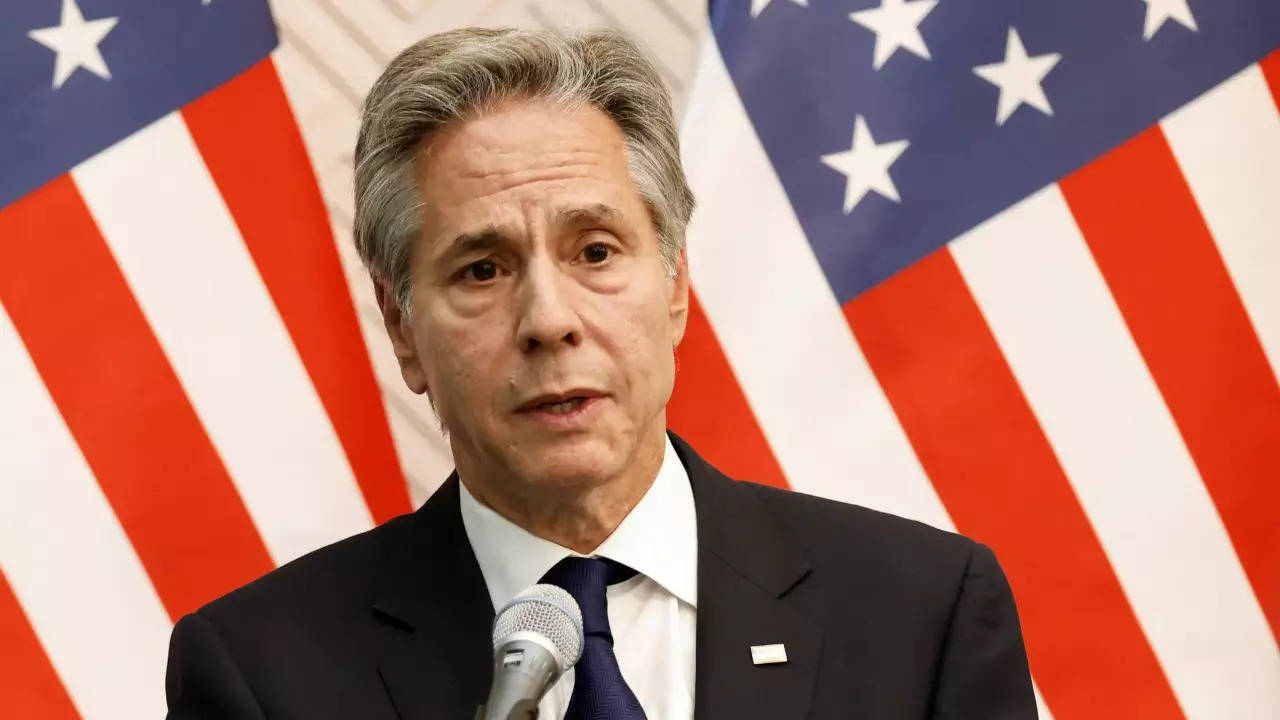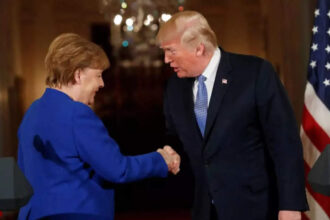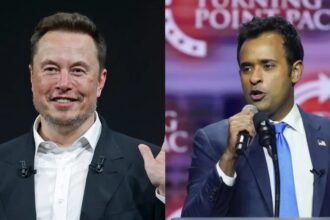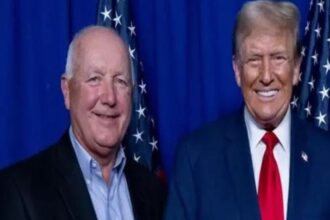As global tensions mount and America’s future role on the world stage remains uncertain, US Secretary Of State Antony Blinken embarked on a significant tour of Asia this week, his first international mission since President Joe Biden’s unexpected withdrawal from the 2024 presidential race, according to AP.
Blinken’s trip, which spanned Laos, Vietnam, Japan, the Philippines, Singapore, and Mongolia, aimed to project stability and reassurance.However, ongoing conflicts and global concerns overshadowed his efforts.
Blinken’s visit to the six nations was marked by frequent questions about the impact of US domestic politics on international relations. His arrival in the Philippines saw President Ferdinand Marcos Jr. acknowledge the shifting political landscape in the United States. “We are very happy to see you once again,” Marcos said in Manila. “I am a bit surprised considering how interesting your political situation has become back in the States, but I’m glad that you’ve found the time to come and visit with us,” as quoted by AP.
In Singapore, Blinken was met with questions about the “noise coming out of the presidential campaign.” He responded with a light-hearted comment, saying, “Really? I hadn’t heard any of it,” before addressing the matter seriously. Blinken reassured the audience that despite electoral fluctuations, “there are a number of constants that don’t fundamentally change irrespective of who wins a particular election.”
Central to Blinken’s message was the assurance of ongoing American engagement abroad, regardless of domestic political shifts. He highlighted that most Americans support international involvement, contrasting this with former President Donald Trump’s “America First” approach, which had unsettled many U.S. allies during his tenure. “If you listen to our fellow citizens, they actually want the United States to be engaged in the world,” Blinken said. “They strongly prefer that the United States not engage the world alone.”
The Secretary of State remarked that global allies desire US leadership and partnership. “Most countries actually want us engaged,” he noted. “They want our leadership, they want our partnership, and that’s a very positive signal that resonates back in the United States.”
Despite Blinken’s attempts to downplay the impact of US politics on international relations, concerns were palpable at several stops. In Tokyo, Japanese Foreign Minister Yoko Kamikawa expressed apprehension about global instability, saying, “Developments that shake the very foundation of the free and open international order based on the rule of law are continuing. Thus, decisions taken by us today will determine our future.”
Blinken reassured that the US-Japan alliance remains robust and will endure regardless of political changes in either country. “I know (the alliance) will be sustained irrespective of the outcome of the elections in either of our countries,” he said. Defense Secretary Lloyd Austin echoed this sentiment, highlighting strong bipartisan support for alliances in the U.S. and ensuring that “things will continue to improve and strengthen no matter who’s in charge.”
As Blinken continued the tour, he also faced questions about the impact of the upcoming US election on foreign policy. He remained steadfast in his response, shifting his focus to the immediate challenges facing the Biden administration. “What I’m focused on and what President Biden is focused on… is doing everything we can on all of these fronts to try to advance peace, to try to advance security,” Blinken said, as per AP.
He pointed out the administration’s commitment to supporting Ukraine and working towards a cease-fire in the ongoing Israel-Hamas conflict. “We’re doing that because that’s our responsibility in this moment, and as long as we have that responsibility, we’ll continue to do our best to get to the right place,” he added.
Blinken’s trip, which spanned Laos, Vietnam, Japan, the Philippines, Singapore, and Mongolia, aimed to project stability and reassurance.However, ongoing conflicts and global concerns overshadowed his efforts.
Blinken’s visit to the six nations was marked by frequent questions about the impact of US domestic politics on international relations. His arrival in the Philippines saw President Ferdinand Marcos Jr. acknowledge the shifting political landscape in the United States. “We are very happy to see you once again,” Marcos said in Manila. “I am a bit surprised considering how interesting your political situation has become back in the States, but I’m glad that you’ve found the time to come and visit with us,” as quoted by AP.
In Singapore, Blinken was met with questions about the “noise coming out of the presidential campaign.” He responded with a light-hearted comment, saying, “Really? I hadn’t heard any of it,” before addressing the matter seriously. Blinken reassured the audience that despite electoral fluctuations, “there are a number of constants that don’t fundamentally change irrespective of who wins a particular election.”
Central to Blinken’s message was the assurance of ongoing American engagement abroad, regardless of domestic political shifts. He highlighted that most Americans support international involvement, contrasting this with former President Donald Trump’s “America First” approach, which had unsettled many U.S. allies during his tenure. “If you listen to our fellow citizens, they actually want the United States to be engaged in the world,” Blinken said. “They strongly prefer that the United States not engage the world alone.”
The Secretary of State remarked that global allies desire US leadership and partnership. “Most countries actually want us engaged,” he noted. “They want our leadership, they want our partnership, and that’s a very positive signal that resonates back in the United States.”
Despite Blinken’s attempts to downplay the impact of US politics on international relations, concerns were palpable at several stops. In Tokyo, Japanese Foreign Minister Yoko Kamikawa expressed apprehension about global instability, saying, “Developments that shake the very foundation of the free and open international order based on the rule of law are continuing. Thus, decisions taken by us today will determine our future.”
Blinken reassured that the US-Japan alliance remains robust and will endure regardless of political changes in either country. “I know (the alliance) will be sustained irrespective of the outcome of the elections in either of our countries,” he said. Defense Secretary Lloyd Austin echoed this sentiment, highlighting strong bipartisan support for alliances in the U.S. and ensuring that “things will continue to improve and strengthen no matter who’s in charge.”
As Blinken continued the tour, he also faced questions about the impact of the upcoming US election on foreign policy. He remained steadfast in his response, shifting his focus to the immediate challenges facing the Biden administration. “What I’m focused on and what President Biden is focused on… is doing everything we can on all of these fronts to try to advance peace, to try to advance security,” Blinken said, as per AP.
He pointed out the administration’s commitment to supporting Ukraine and working towards a cease-fire in the ongoing Israel-Hamas conflict. “We’re doing that because that’s our responsibility in this moment, and as long as we have that responsibility, we’ll continue to do our best to get to the right place,” he added.
Source : Times of India






